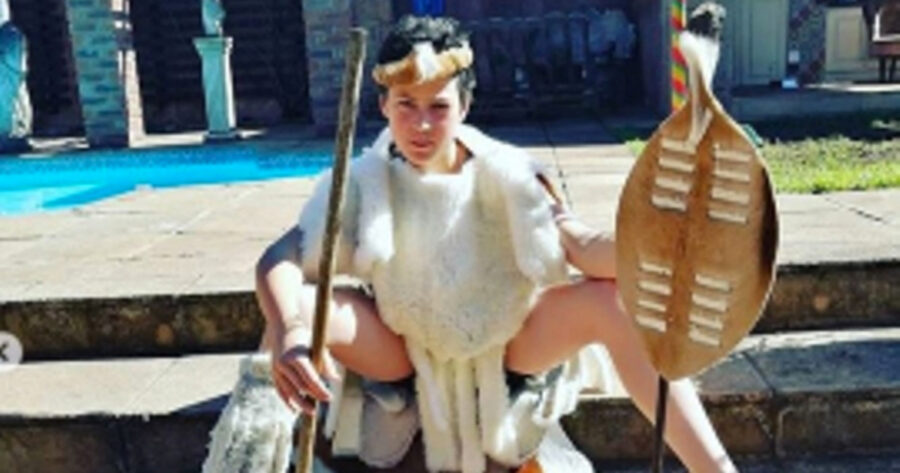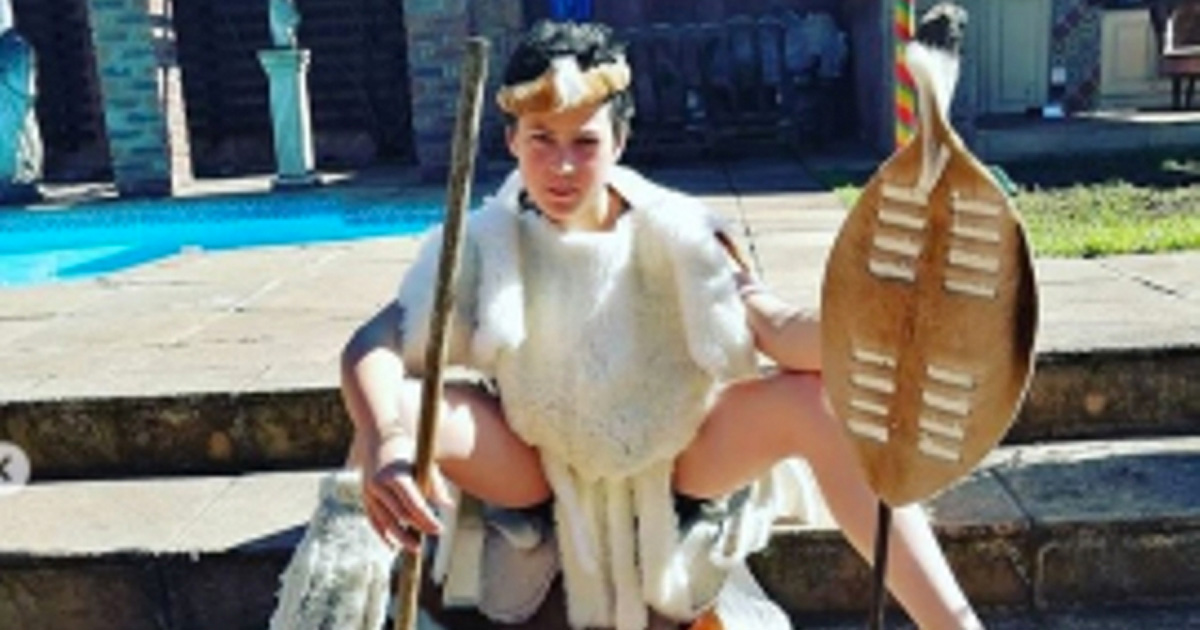
15-Year-Old Embracing South Africa’s Heritage
As we celebrate Heritage Month, South Africa – a melting pot of cultural diversity – continues to embrace its haunted history of racial divisions through a citizenry that displays a will to triumph over adversity… often with humour – like the recent Chicken Licken advert that lightened the gloomy environment, brought smiles to South Africans… […]

As we celebrate Heritage Month, South Africa – a melting pot of cultural diversity – continues to embrace its haunted history of racial divisions through a citizenry that displays a will to triumph over adversity… often with humour – like the recent Chicken Licken advert that lightened the gloomy environment, brought smiles to South Africans… and featured a 15-year-old fluent isiZulu speaking white teenager.
In the commercial, the youngster blurts out “WeTira, ubani lo mlungu? (Meaning who is this White person?). This is in reference to the raconteur, Black comedian Tyson Ngubeni in character mode of his US newscaster alter ego, Bob O’Connor… paying tribute to the way South Africans have turned grapes into wine – and not whines.
The conspicuous enquirer in the commercial is Stefano Di Mauro, or Mehlemamba Ngidi, as he prefers to be known.
His 15 seconds or two, to be precise, of fame is no act. The 15 year-old Maskandi music aficionado is on a journey of self-discovery.
“I picked up the language from our helper at home, Lindiwe Ngidi, who has been our helper since I was one-year old,” he says in a thick rural isiZulu accent. His grasp of the language and culture has catapulted his popularity on social media with his Instagram account rising to 28 000 followers during the lockdown.
Watch Mehlemamba speaking isiZulu
https://www.instagram.com/p/B5ypVJFANr8/
His audience is drawn to videos of himself performing a choreographed foot-stomping traditional Zulu music while decked in the clichéd Maskandi look comprising of a white fedora or panama hat, a shiny pair of Brentwood trousers and Carvella moccasins.
If that does a disservice to driving home a stereotype, Ngidi sports a patent isiphandla (goatskin armband). The armband is of great significance in Zulu ancestry doctrine.
The teenager intends to change his surname to Ngidi once he turns 18.
His family, the Ngidis, fully embraces him and earlier this year conducted an imbeleko ceremony for him, which culminated in the isiphandla. The ceremony is a formal introduction of a family’s latest addition to the living and to the deceased.
“At home I was taught isiZulu but I speak in English with my mum, dad and siblings. My parents can’t speak isiZulu [but] do understand bits of it,” he says.
“I was brought up by her,” he says of Lindiwe Ngidi.
WATCH The advert featuring 2 seconds of Stefano / Mehlemamba
A road construction worker in his neighbourhood who heard him jamming to “Gqom”, a Kwaito house music sub-genre, three years ago sparked his passion for the Maskandi genre.
“I was 13 when this guy heard me enjoying songs by Dladla Mshunqisi and DJ Tira and the likes, along a road not far from home. He had just finished a shift when he asked what I was listening to, I told him and he scoffed. He suggested that I listen to Maskandi music instead,” he says.
The Maskandi bug bit that very sunny afternoon.
“I absolutely loved the songs [and] the message. It was magical,” he said.
Ngidi is now pursuing a career in Maskandi music.
Beyond the vocal lessons, he is also taking acoustic guitar lessons while being groomed by some of the biggest names in the genre.
Although his grasp of the country’s most spoken language has earned him many admirers, it has also presented an opportunity to confront what at times, appears to be fragile race relations.
“I still have my white friends but they get a bit irritable when I speak isiZulu with them because they don’t understand [and] often think I’m ridiculing them,” he giggles.
“But I do from time to time give them lessons and translations when we’re together.”
At his school, English and Afrikaans are the only language options on offer between Grade 1 and 7.
“Personally I don’t see it as an issue that a lot of fellow white people can’t speak isiZulu in KwaZulu-Natal because it’s a life choice. You can’t force anyone to do it if the passion is not there,” he explains.
He adds that as much as this would be ideal, it is good that English speakers are not forced to learn vernacular languages, saying that if they were, this would create resentment and fuel hatred.
“IsiZulu is who I am. From a young age I knew that this is who I want to be, this is who I am,” he said.

This Heritage Month, his wish for the country is simple: unity and harmony.
“I’m really tired of all these divisions that we have. People get into squabbles because one is White and the other is Black, because the other person Christian and the other one is Jew or Muslim. They fight forgetting that at the end of the day, we are all human.”
Learning and embracing different cultures would go a considerable distance to achieving this.
The Grade 8 learner’s aspirations remain pursuing a career in music. If all fails, he is determined to follow his retired father’s example as a policeman in tactical forces or in the K9 units.
Heritage Day recognises and celebrates the cultural wealth of the nation.
By: Sihle Manda– SAnews.gov.za

